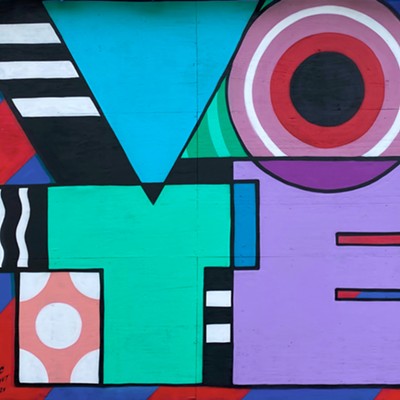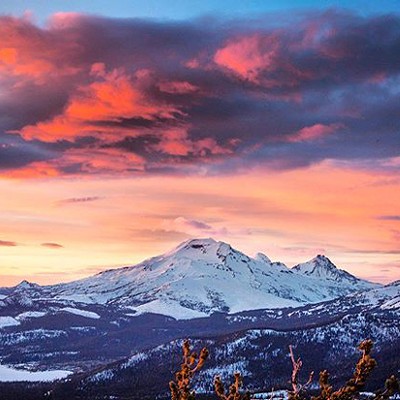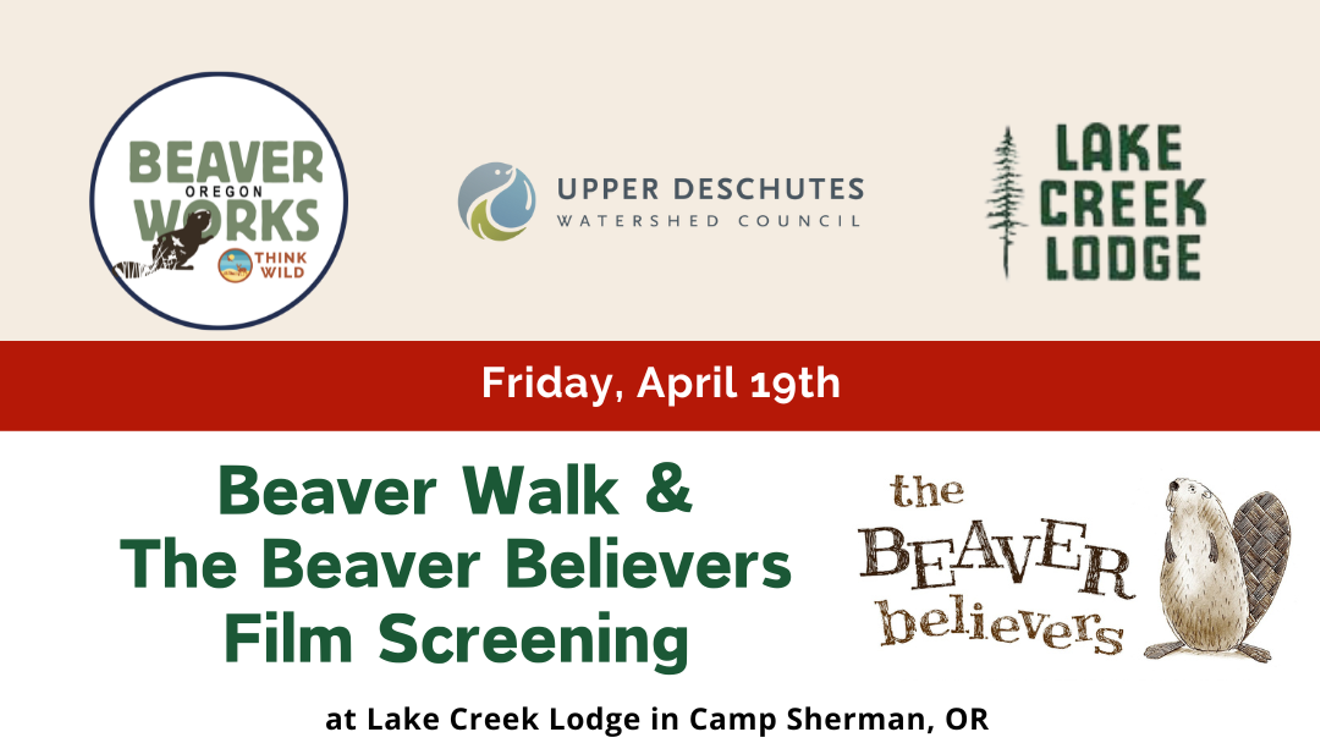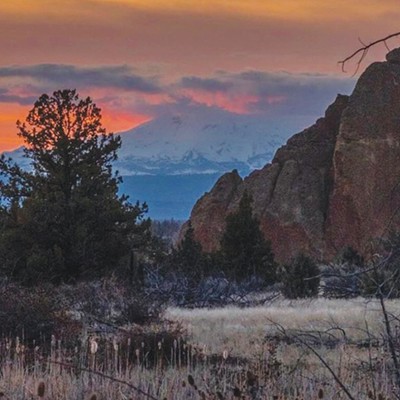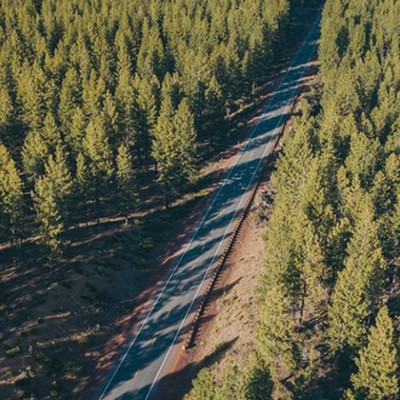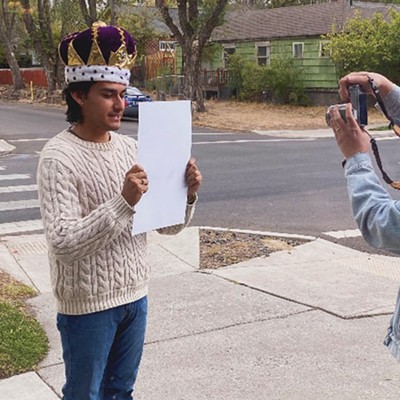In response to "Tiny Homes" (3/24)
Thank you for featuring Tiny Homes on the cover of The Source and shining the light on the resistance of the City Planners and the City Council to think outside of the box to solve Bend's affordable housing crisis. The City Councils' choice not to create zoning for tiny houses and their vote to only allow cluster housing on parcels of one acre or larger shows they are more interested in keeping the homeless, homeless than working on solutions.
A solution for Tiny Houses that was not discussed is creating Tiny House parks, similar to mobile home parks. All of Jim Long's objections could be addressed by requiring kick out windows in sleeping lofts and allowing plumbing only in a centrally located community buildings which could house a kitchen, bathrooms, showers, laundry facilities and a gathering room for residents. Restricting cluster housing to parcels of one acre or larger effectively ensures moderate income households can't afford to purchase a home in Bend.
The city's solution to affordable housing is multiple story buildings. Is the city proposing affordable multiple story condominiums? Not that I'm aware of. What they are suggesting is multiple story rentals. Who benefits from high rise apartments? The owners of the building, not the tenants. This solution creates more of the same problems we are already experiencing: high rent over which residents have no recourse or options.
Affordable housing doesn't have to be a single solution issue. Creating tiny house parks with community buildings and allowing cluster housing on all size lots could quickly add affordable housing to Bend while increasing density.
~Calli Roberts
Funding road repair – what now?
As I watch the pavement in almost every intersection in Bend explode in potholes and fight to keep my vehicle in the ruts on (put your street name here), I want to congratulate Councilmen Roats and Chudowsky on their success in defeating the gas tax measure. I now look forward to their detailed funding plan for street pavement replacement, repair, and maintenance. At this time, the onus rests on them to uncover the "hidden" funds, reprioritize spending, and adequately budget the street construction and maintenance in Bend. Along with the rest of the anti-tax crowd, they wrote a check with their votes that the community at large wants to cash. Let's hope it doesn't bounce (the way my truck does every time I drive through the intersection of Third and Greenwood.)
~Stephen Cramer
In reply to "Wilderness - Mt. Bike Fight Brewing" (Bent Blog)
These people are alienating all of us mountain bikers, who must now choose between more wilderness, an idea I think a lot of us love, and fewer places to ride, which isn't good.
Mountain bikes do less damage than horses, without even considering that hunting is legitimate in Wilderness areas. I'm not opposed to hunting, but I certainly think leaving a boot track or tire track is far less impactful than killing an animal. Indeed, not just mountain bikes are banned, but baby strollers are too! The current policies just don't seem rational.
Allowing bikes on a case-by-case basis, with the decision made by local managers, makes a lot of sense to me.
Rather than being upset about other people going to "our" Wilderness, we should realize it belongs to all of us, and concentrate on enjoying it rather than being bothered by the "wrong" sorts of people being present.
And while we're on the subject... baby strollers - are those in the physical, or spiritual damage category?
What's silly is that in terms of actual environmental damage, neither hikers, nor horses, nor bikes do 1/100,000th of the damage a logging or mining operation does, and by needlessly dividing ourselves, we're getting distracted from what actually impacts the environment the most.
~David N. Welton
The Wilderness Act clearly banned bikes
The original language of the 1964 Wilderness Act says in section 4(c): "Prohibition of Certain Uses... no use of motor vehicles, motorized equipment or motorboats, no landing of aircraft, no other form of mechanical transport, and no structure or installation within any such area."
I don't know about you, but I consider a mountain bike a form of "mechanical transport."
Furthermore, I would argue that Wilderness and other reserves do not exist purely for people--and this is one of the most important things that too many mountain bikers don't seem to get. These lands are among the few places in our country where native species, natural processes, and the very essence of self-willed lands can exist.
As has been suggested, get off your bike, slow down and walk. You might actually start to understand that wild places exist for more than people's recreational choices.
~George Wuerthner
Upper Deschutes ~ a call for progress
Since the construction of Wickiup Dam in 1949 there is absolutely much less water--and much more water--in the upper Deschutes then ever before, depending on the time of year you measure. For the sake of my discussion "upper Deschutes" means the river from Wickiup Dam down to Benham Falls.
The upper river explodes with flood-level flows during the irrigation season (April-October) and starves for water during the winter (November-March) while irrigation water is stored in giant artificial reservoirs. It's far from natural.
Frankly I can find no significant evidence of REAL progress. The water outside my door in winter is as low as ever, there's less opportunity for fishing then ever, the water quality is as low as ever and nothing concrete seems to be changing for the better on the upper Deschutes.
How can it take 10 years just to make a plan to make things better for the Deschutes? How long will implementation of that plan take...10 more years...20 years?
The users of irrigation water have important rights, but with those rights come responsibilities to their neighbors, the communities they live in and, yes, to Mother Nature. She was here first and will be here long after the farms are gone.
Water users must make ACTUAL progress in how the water is used and in reducing waste or the rest of the community has no alternative but to "get legal" to protect its own rights. The two current lawsuits are indicative of what we all hope is NOT the future.
~Mike Taylor
Mike – thank you for joining the conversation and sharing your perspective based on many years of life on the upper Deschutes River. Please keep the conversation going with a cup of coffee on us. Pick up your Palate gift card at the Source Weekly office.

